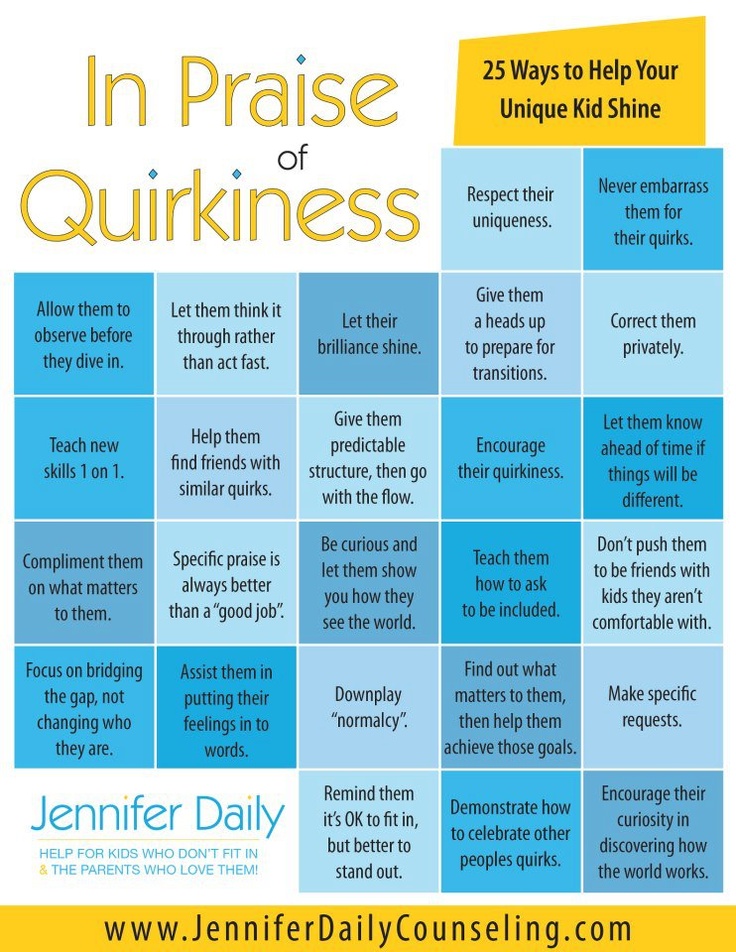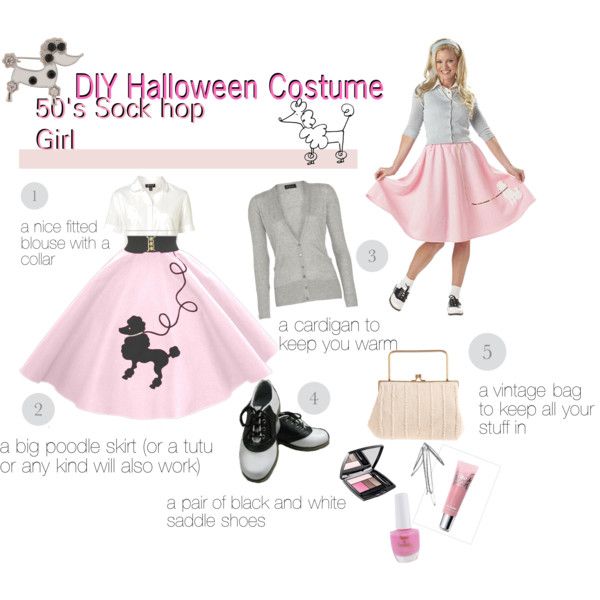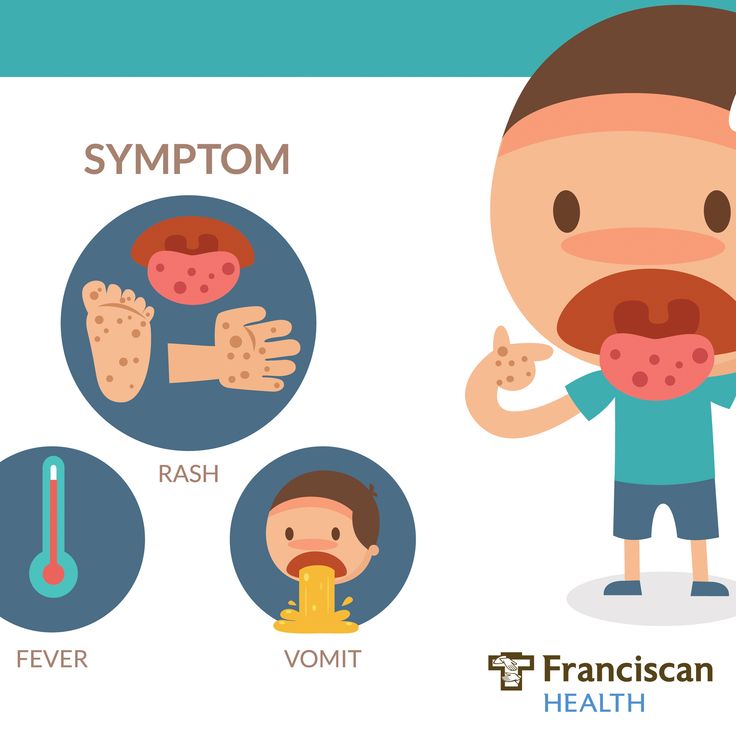How to help a child with aspergers make friends
Helping Kids with Autism Make Friends
An important part of making friends comes from having age-appropriate social skills, which many kids who have autism struggle with. Imagine trying to make friends when you have trouble reading social cues, like body language, facial expressions and tones of voice. That’s part of the reason approximately 52 percent of kids with autism spectrum disorder (ASD) don’t have many friends at school.
But kids who have autism, just like all kids, benefit from having friends in their peer groups. Don’t worry, there are steps you can take to support your child in making a new friend.
1. Help your child understand what a friend isThis may seem basic, but you child needs to know what a friend is. She can’t be a friend unless she can explain what one is. Keep things simple. Ask questions like, “Do you like being around people who call you names?” and “Do you like being around people who say nice things to you?” Understanding abstract concepts can be challenging for young kids, especially those with autism. Be literal when you can. Use clear, plain language like, “ “friends are nice to you and say things that make you feel better when you have a bad day.”
Children with autism often learn better when they can see or read what they’re supposed to do. Social stories guide a child through a specific situation using pictures and words. Writing a script or drawing out the flow of a conversation can help your child understand the basics of how to talk to a friend.
3. Practice, practice, practiceChildren with autism need a little more time and repetition to learn a new skill. Practicing with your child can help her feel more comfortable with the process and problem-solve any “bumps” before she encounters them in real time. Practice different aspects of making a friend, like asking questions, answering questions, sharing toys or suggesting an activity. Have your child practice with siblings, neighbors or similar-age cousins.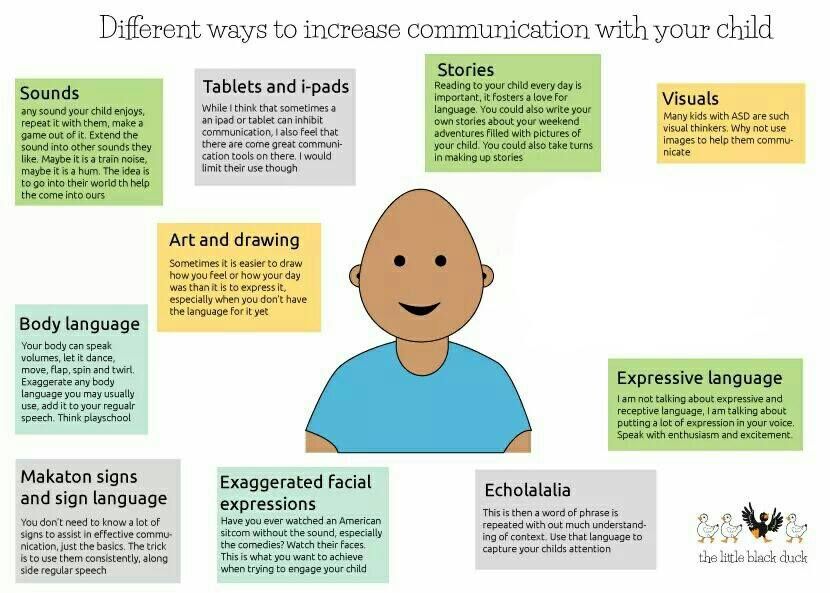 Select people who are going to be patient and know your child well—you want your child to feel safe while practicing.
Select people who are going to be patient and know your child well—you want your child to feel safe while practicing.
Common interests are important factors in developing and maintaining friendships. It’s hard to be friends with someone you have nothing in common with. If your child loves art, enroll her in an art class. If your child loves science, find a young scientists group. Make sure these groups have similar-aged peers so she is surrounded by age-appropriate behavior.
5. Focus on long-term successDeveloping new skills takes time. Nothing happens overnight. Social skills continue to develop as your child gets older. Making friends looks very different for a 4 year old than it does for a 14 year old. Keep practicing this skill with your child to help her continue to develop age-appropriate social skills.
6. Have funIf making friends feels like work, our children will likely avoid the interaction. Watching your child learn and grow is amazing, but it can also be stressful. If she sees you’re stressed, she may become stressed, too. Support your child and make the process as fun and playful as possible.
Watching your child learn and grow is amazing, but it can also be stressful. If she sees you’re stressed, she may become stressed, too. Support your child and make the process as fun and playful as possible.
Read a very special story about an autism friendship.
We recognize that every child is unique and that the content of this article may not work for everyone. This content is general information and is not specific medical advice. We hope these tips will serve as a jumping-off point for finding the best approach to helping a child with autism. Always consult with a doctor or healthcare provider if you have any questions or concerns about the health of a child. In case of an urgent concern or emergency, call 911 or go to the nearest emergency department right away. Some physicians and affiliated healthcare professionals on Children’s Healthcare of Atlanta team are independent providers and are not our employees.
My ASD Child: Helping Your Aspergers Child to Make Friends: 10 Tips for Parents
Search This Site
Followers
Helping Your Aspergers Child to Make Friends: 10 Tips for Parents
Always an eccentric youngster, your child has now been diagnosed with Aspergers (or high functioning autism). The social world of kids is chaotic enough these days, but a child on the spectrum is particularly challenged. Nonetheless, with the parent’s help, an "Aspie" can find - and keep - friends. Here’s how:
The social world of kids is chaotic enough these days, but a child on the spectrum is particularly challenged. Nonetheless, with the parent’s help, an "Aspie" can find - and keep - friends. Here’s how:
1. Align your own expectations with reality. Know that the Aspergers youngster will probably not be popular, but can be happy and fulfilled with just one or two good friends.
2. Encourage your youngster to notice when other children are interested in him, because he may not pick up on attention. Impress upon him that it's important to remember classmate's names and use them in conversation.
3. Find a therapist who specializes in, or at least understands, children with Aspergers. Your child will have issues around being "different" that he must discuss with someone, preferably a qualified professional. He may need further help in setting social goals.
4. Know that Aspergers is defined as a pervasive developmental disorder on the autism spectrum characterized by a discrepancy between intellectual and social abilities.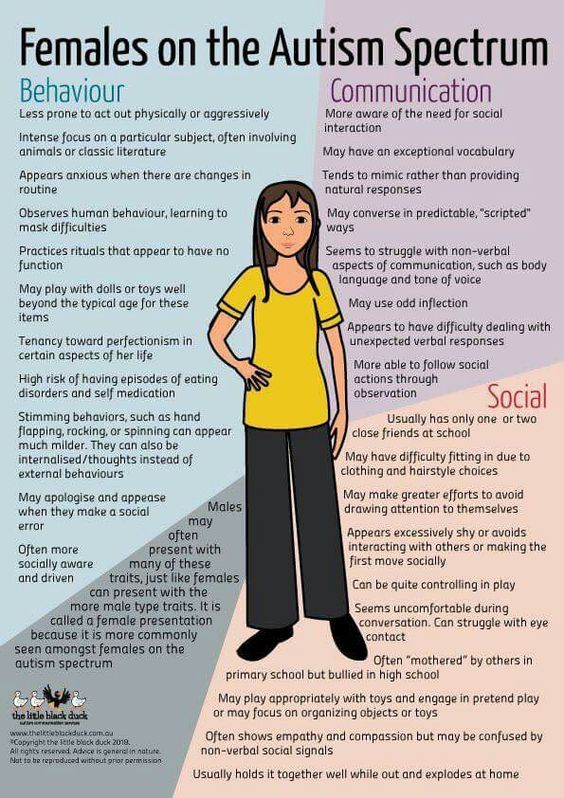
5. Know that your Aspergers youngster may appear to be indifferent to his lack of friends. Many of these children care deeply, but have simply given up on having a social life.
6. Limit solo activities such as video games, but know that too much social time can be overwhelming.
7. Locate Social Skills groups in your area. They usually consist of three or more children of the same age who meet once a week to interact socially under the guidance of a therapist. The goal is to take their new skills into the broader world.
8. Support your child in setting up social activities. She may be uncomfortable asking someone to just "hang out," so a movie and ice cream may be more desirable.
9. Understand that those who have Aspergers have difficulty understanding social cues, although they are often academically advanced.
10. Urge him to join school clubs. Many Aspergers children have very specific interests and can parlay their skills in this area into a social activity.
==> The Aspergers Comprehensive Handbook
Newer Post Older Post Home
Subscribe to: Post Comments (Atom)
My child has been rejected by his peers, ridiculed and bullied !!!
Social rejection has devastating effects in many areas of functioning. Because the ASD child tends to internalize how others treat him, rejection damages self-esteem and often causes anxiety and depression. As the child feels worse about himself and becomes more anxious and depressed – he performs worse, socially and intellectually.
Click here to read the full article…
How to Prevent Meltdowns in Children on the Spectrum
Meltdowns are not a pretty sight. They are somewhat like overblown temper tantrums, but unlike tantrums, meltdowns can last anywhere from ten minutes to over an hour. When it starts, the Asperger's or HFA child is totally out-of-control. When it ends, both you and your child are totally exhausted.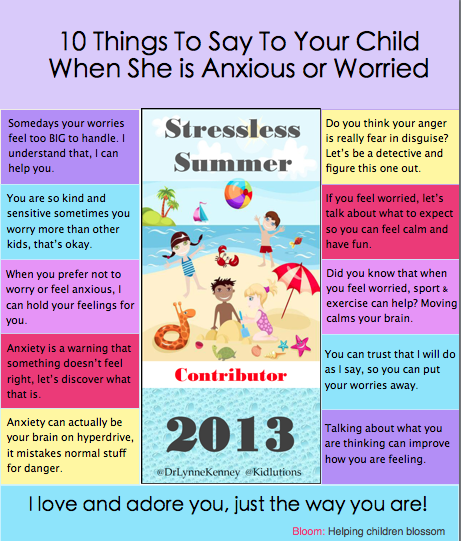 But... don’t breathe a sigh of relief yet. At the least provocation, for the remainder of that day -- and sometimes into the next - the meltdown can return in full force.
But... don’t breathe a sigh of relief yet. At the least provocation, for the remainder of that day -- and sometimes into the next - the meltdown can return in full force.
Click here for the full article...
Parenting Defiant Teens on the Spectrum
Although Aspergers [high-functioning autism] is at the milder end of the autism spectrum, the challenges parents face when disciplining a teenager on the spectrum are more difficult than they would be with an average teen. Complicated by defiant behavior, the teen is at risk for even greater difficulties on multiple levels – unless the parents’ disciplinary techniques are tailored to their child's special needs.
Click here to read the full article…
Older Teens and Young Adult Children with ASD Still Living At Home
Your older teenager or young “adult child” isn’t sure what to do, and he is asking you for money every few days. How do you cut the purse strings and teach him to be independent? Parents of teens with ASD face many problems that other parents do not.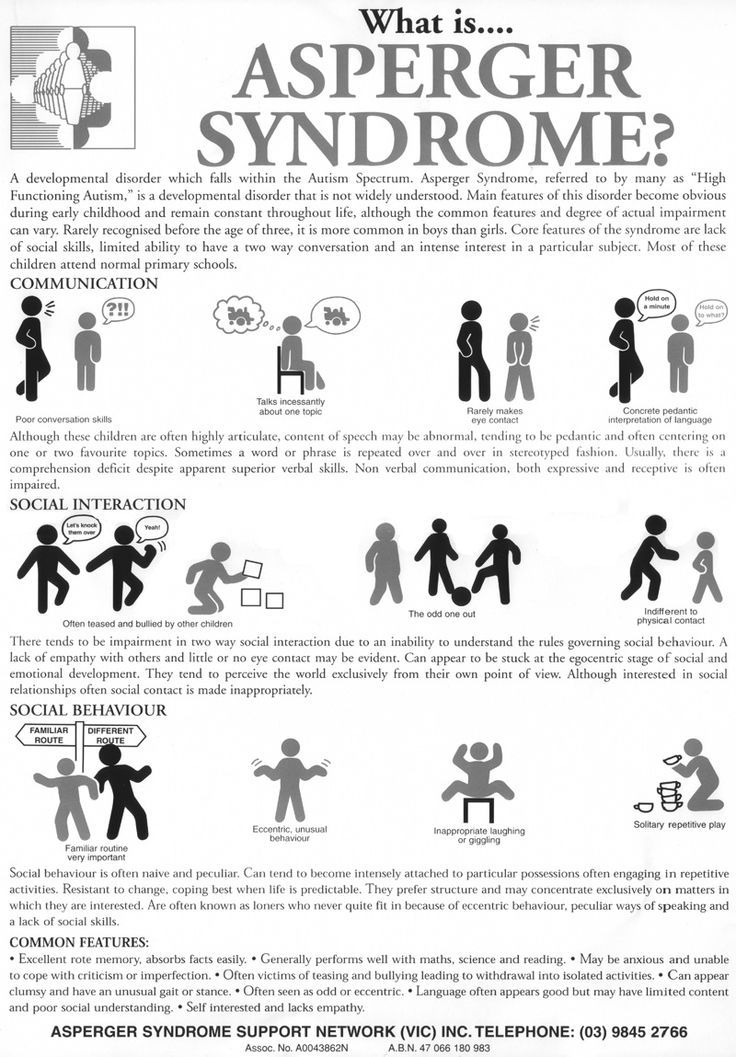 Time is running out for teaching their adolescent how to become an independent adult. As one mother put it, "There's so little time, yet so much left to do."
Time is running out for teaching their adolescent how to become an independent adult. As one mother put it, "There's so little time, yet so much left to do."
Click here to read the full article…
Parenting Children and Teens with High-Functioning Autism
Two traits often found in kids with High-Functioning Autism are “mind-blindness” (i.e., the inability to predict the beliefs and intentions of others) and “alexithymia” (i.e., the inability to identify and interpret emotional signals in others). These two traits reduce the youngster’s ability to empathize with peers. As a result, he or she may be perceived by adults and other children as selfish, insensitive and uncaring.
Click here to read the full article...
Highly Effective Research-Based Parenting Strategies for Children with Asperger's and HFA
Become an expert in helping your child cope with his or her “out-of-control” emotions, inability to make and keep friends, stress, anger, thinking errors, and resistance to change.
Click here for the full article...
How to help a child with Asperger's syndrome find friends?
05/20/14
Recommendations of an adult with Asperger's Syndrome Parents with this diagnosis
Author: Gavin Bollard
Translation: Elena Chernovskaya
Sour
"Who did you play with at school today?" is a common question from a mother, the answer to which was a muttering: “No one…” And this is one of the most common problems that parents and their children with Asperger's syndrome face.
Making friends is not easy, but maintaining friendship is even more difficult. Back in November, I wrote an article about my own experiences growing up and making friends, but this time I want to offer some tips and tricks for parents whose kids have trouble making friends.
How to recognize a friend
Friendship is preceded by a series of steps that are not instinctive for children with Asperger's syndrome.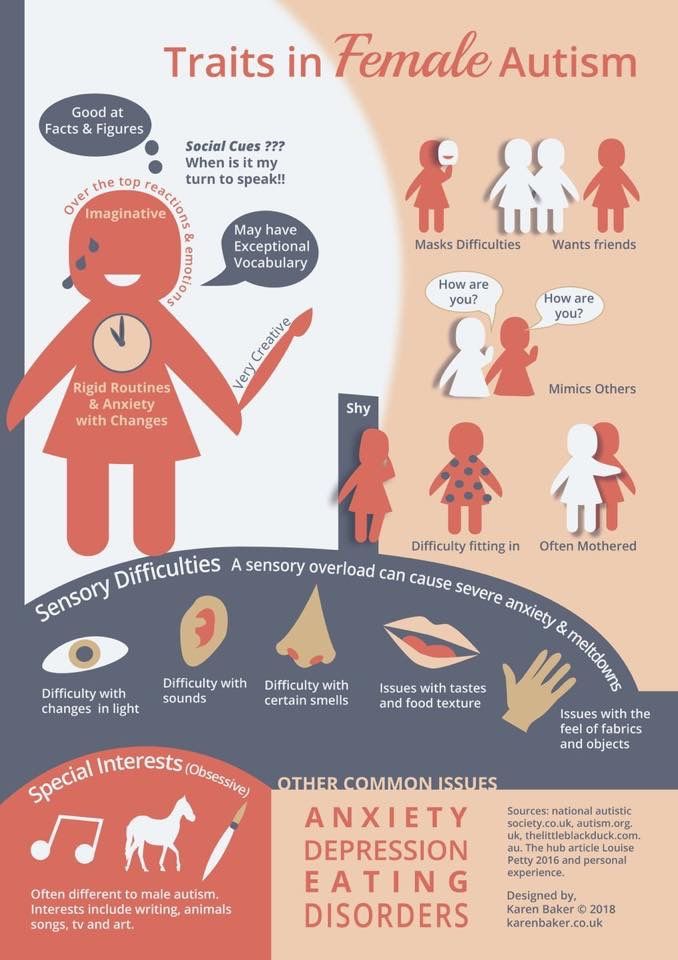 The first step to friendship is recognition, a step that consists of two parts - recognizing the face and remembering the name. The first part is usually straightforward, although some children do not recognize faces at all, and some have difficulty recognizing when others change their hairstyle or other aspects of appearance. There were times in my childhood when I didn't realize that the kid I befriended a year ago was the same boy who had just come up and talked to me.
The first step to friendship is recognition, a step that consists of two parts - recognizing the face and remembering the name. The first part is usually straightforward, although some children do not recognize faces at all, and some have difficulty recognizing when others change their hairstyle or other aspects of appearance. There were times in my childhood when I didn't realize that the kid I befriended a year ago was the same boy who had just come up and talked to me.
Sometimes my mother had to step in and say, “Don’t you remember Aaron, you played football with him all last year…” Sometimes I would say, “No, it was a different Aaron,” but her words made me think and often her clues gave me the opportunity to renew the friendship.
Remembering a name is much more difficult, and it is not uncommon for some children to be unable to remember their teacher's name for several months, let alone the names of their classmates. A particular problem for me was that I was always very careful with the names, so I did not even risk saying them.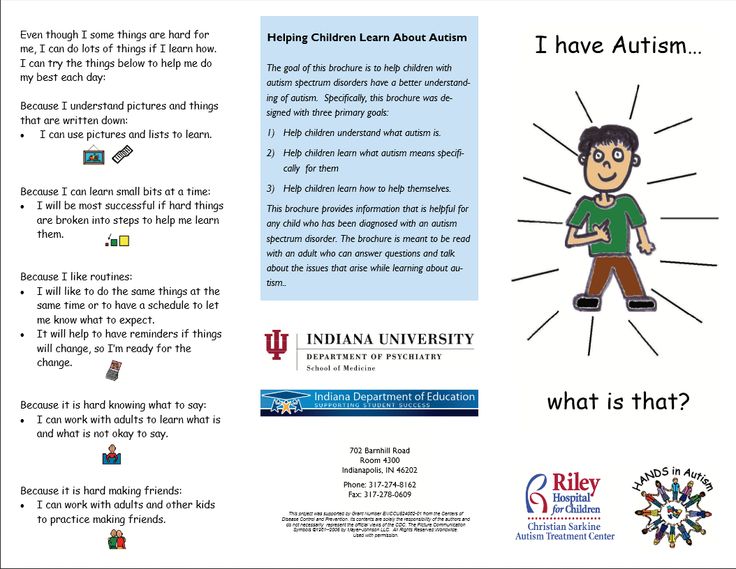 I may well have known the name of the teacher, but I never said his name out loud, so as not to be mistaken.
I may well have known the name of the teacher, but I never said his name out loud, so as not to be mistaken.
It took a while for my mother to realize this, and eventually she began to speak and write down the names of my teachers for me until I felt more confident.
Why names are important
One of the most annoying things that can happen is when you can't say someone's name. My youngest son played with one boy every day in kindergarten. They were great friends and apparently this boy used to talk about my son at home every day, calling him by his first name. One day, when my wife was picking him up, she asked the boy's name, and our son replied, "I don't know!" This caused a very emotional reaction from the boy's mother, who was standing nearby.
Apparently, their family had repeatedly heard the name of our son at home, and he himself did not even know the name of his friend. The boy's mother did not understand that our son does not need a name to maintain a strong friendship with someone.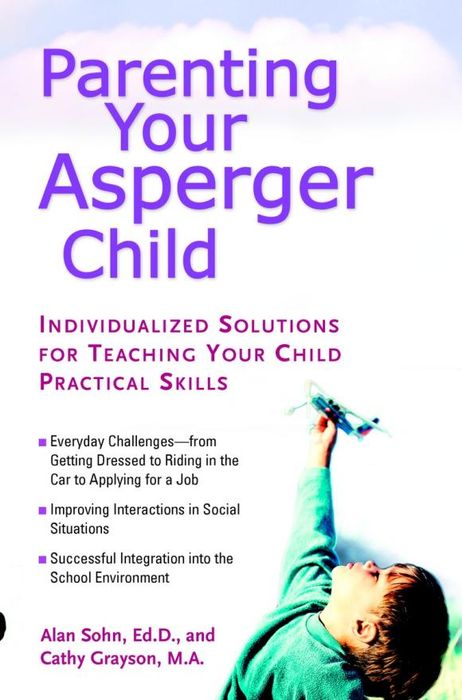
Memorizing names
One good exercise is to use school pictures to help your child remember names. It is helpful to keep copies of these photos near where you and your child do homework and discuss things at school; or perhaps even next to the dining table. Set a goal to memorize one or two names per evening. Do it in the game, as if by accident, not intentionally. So the child will learn to associate names and faces, and not just memorize the list. For best results, start by asking your child who they are playing with, who is in their class. You can also ask him to point to photos of bullies or children who have similar interests to him.
Remembering names and associating them with faces is an important step in building friendships.
Hello! My name is…
— Hello! It's you...
Common Interests
One of the best ways to help your child with Asperger's make friends is to find children with similar interests. To make this process easier, invite your child to bring something related to their interests.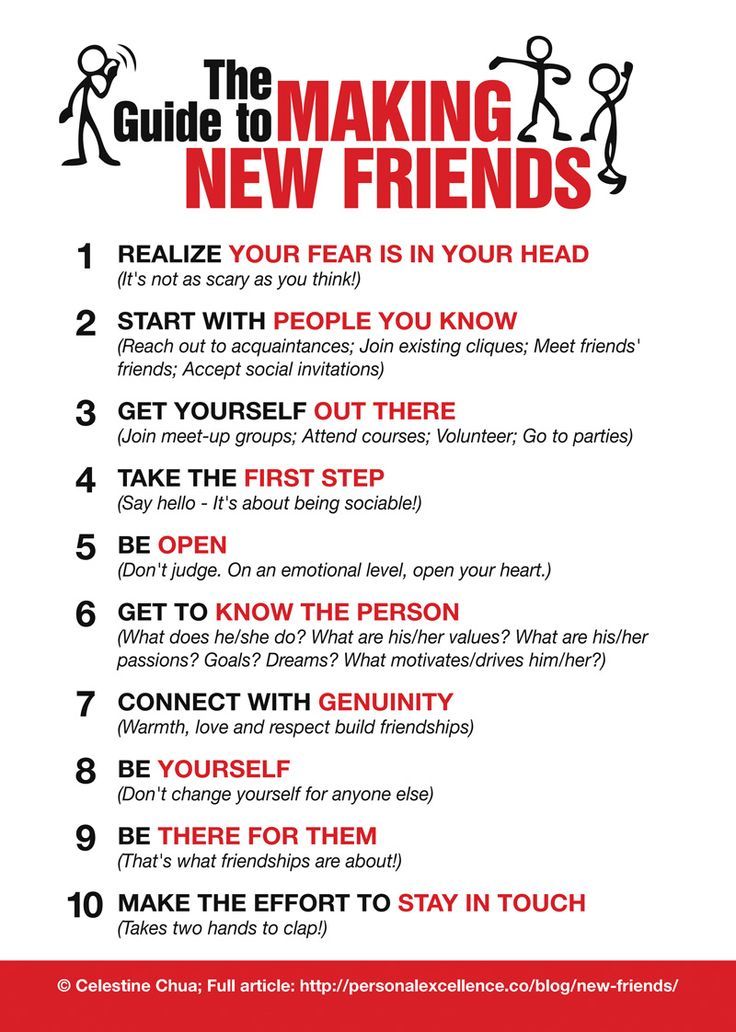 For example, if he loves football or a particular football team, then try to send him to school with "signature" items like pencil cases, book covers, and if uniforms are not a requirement at your school, offer themed clothing. But make sure everything is age appropriate. Sending a 14-year-old to school with a "SpongeBob" insignia can attract unwanted attention from bullies.
For example, if he loves football or a particular football team, then try to send him to school with "signature" items like pencil cases, book covers, and if uniforms are not a requirement at your school, offer themed clothing. But make sure everything is age appropriate. Sending a 14-year-old to school with a "SpongeBob" insignia can attract unwanted attention from bullies.
When your child comes home, ask them who noticed these brand differences, and try to look for positive and/or repeat comments. Your child may need a little help from you, so be ready to support him by offering to talk to any child who shows interest in him.
Arranging Game Meetings
If a common interest becomes apparent, consider organizing a game meeting or going together on a weekend. If your child is unable to communicate successfully, you can contact teachers for help. The teachers will not be able to give you the other child's phone number, but they will give you your number because they have given you permission.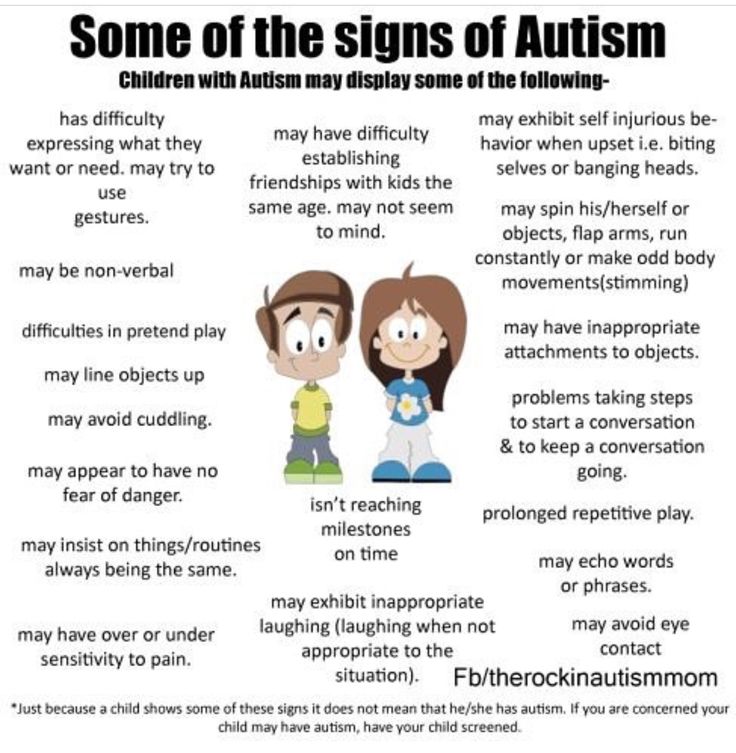
When arranging a play date, make sure that only one child comes to visit. Inviting two friends at once carries the risk that two visitors will play with each other without your child. If you have two kids, it's best to invite two friends over to avoid one of your kids playing with a friend meant for the other.
If you're hosting a fun activity away from home, try to choose a location where there aren't other kids—or at least a chance of meeting a mutual friend. The parks, for example, are full of other kids, and all of this can lead to other kids who randomly play nearby.
Be sure to invite the other child's parents so that they can also attend. Some parents leave the child and run away, others find it necessary to keep a close eye on their child in a new situation. This is especially true when it comes to children of different sexes. It may seem unusual, but if you have a boy who has no friends, then it is better to make friends with a girl than not to have friends at all.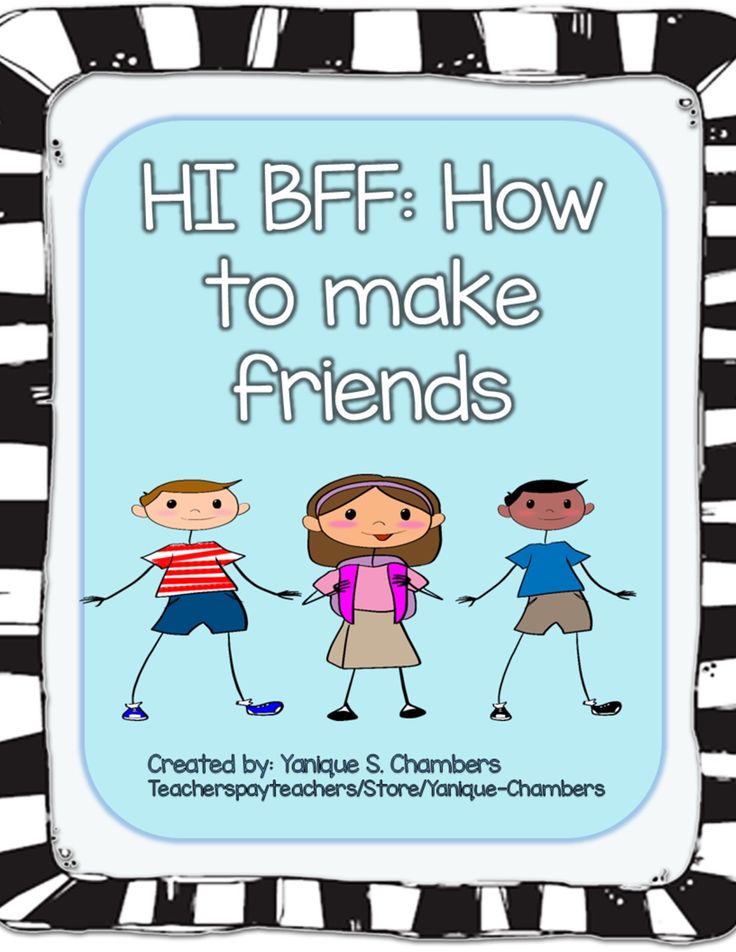
See if your child is playing with his new friend or not. If not, ask your child why. Your child may need a little advice on how to start communication.
Try not to immediately insist on mutual agreements. Some parents can't handle multiple kids at the same time and don't like to take responsibility for such activities. Sometimes a response prompt may follow immediately, and sometimes there will be none at all.
This in itself is not a problem until your child reports more than one event where one or more other classmates were invited and they were not.
If this happens, it is often better to look around and look for other friends than to "push the water in a mortar."
Thanks to Elena Chernovskaya for the translation.
We hope you found this material useful or interesting. You can support people with autism in Russia and contribute to the work of the Foundation by clicking on the "Help" button.
Parenting with Autism, Autistic Notes, First Person, Asperger Syndrome, Social Skills in children with autism.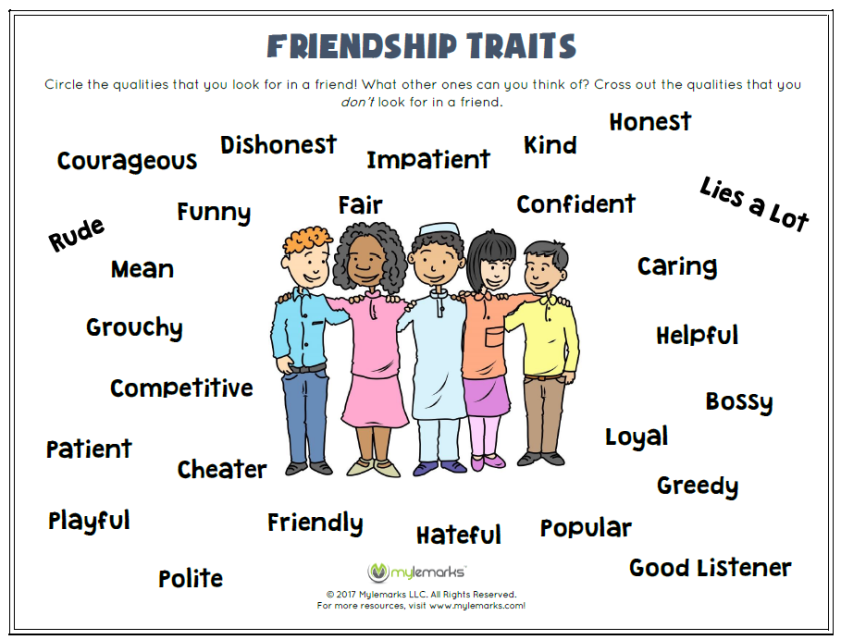 Imagine what it's like to make friends without being able to read social cues like body language, facial expressions, and intonation. It is for this reason that about 52% of children with autism spectrum disorders (ASD) do not have friends at school.
Imagine what it's like to make friends without being able to read social cues like body language, facial expressions, and intonation. It is for this reason that about 52% of children with autism spectrum disorders (ASD) do not have friends at school.
But, like all children, children with autism benefit from having friends among their peers. Don't worry, there are a few steps you can take to help your child make friends.
1. Help your child understand what it means to be a friend
This may sound simple, but your child needs to understand what a friend is. He or she can't be a friend if he can't explain what that means. Try to speak more simply. Ask: "Do you like being with guys who call names?" and "Do you enjoy being with people who say nice things to you?" Abstract concepts can be difficult for young children to grasp, especially for those with autism. Be as literal as you can. Choose a simple and understandable speech: "Friends are kind to you and say words that cheer you up.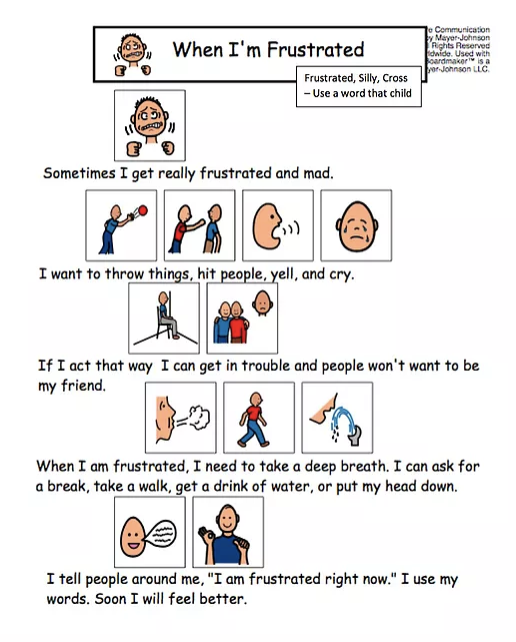 "
"
2. Visual models such as social stories
Children with autism often learn best when they can see or read what they need to do. Social stories explain a specific situation to a child through pictures and words. A script or picture of the conversation process can help your child understand the basics of talking to a friend.
3. Practice, practice, practice
Children with autism need a little more time and repetition to master skills. Practicing with your child can help him feel more comfortable with the process and deal with any bumps before he or she encounters them in a real situation. Practice different aspects of friendship building, such as asking questions, answering questions, sharing toys, and suggesting activity. Let your child train with a brother or sister, neighbors or cousins of the same age as him. Choose patient people who know your child well - he needs to feel safe when he practices.
4. Surround your child with children with similar interests
Shared interests are an important factor in developing and maintaining friendships.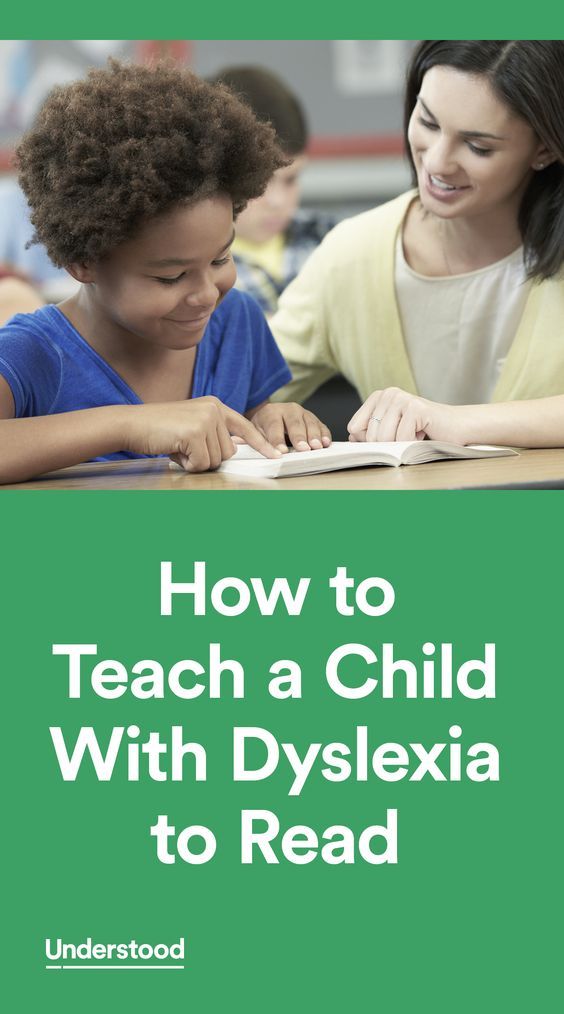 It's hard to make friends with someone you have nothing in common with. If your child loves creativity, enroll him in a drawing circle. If your child likes science, find a group of young scientists. Make sure these circles include your child's peers so they can observe age-appropriate behavior.
It's hard to make friends with someone you have nothing in common with. If your child loves creativity, enroll him in a drawing circle. If your child likes science, find a group of young scientists. Make sure these circles include your child's peers so they can observe age-appropriate behavior.
5. Focus on long-term success
It takes time to develop new skills. It won't happen overnight. Social skills continue to develop as a child grows. At four, friendships start up differently than at 14. Keep practicing to help your child develop social skills appropriate to their age.
6. Have fun
If making friends is a work-like task for a child, our children are more likely to avoid such interactions. Watching your children learn and grow is great, but it can also be stressful. If a child sees that you are stressed, he may be exposed to it too. Support your child and make the process as fun and exciting as possible.
We recognize that every child is unique and the content of this article may not work for some.